Giles Martin on remixing The Beatles
Giles on Let It Be and what happens next
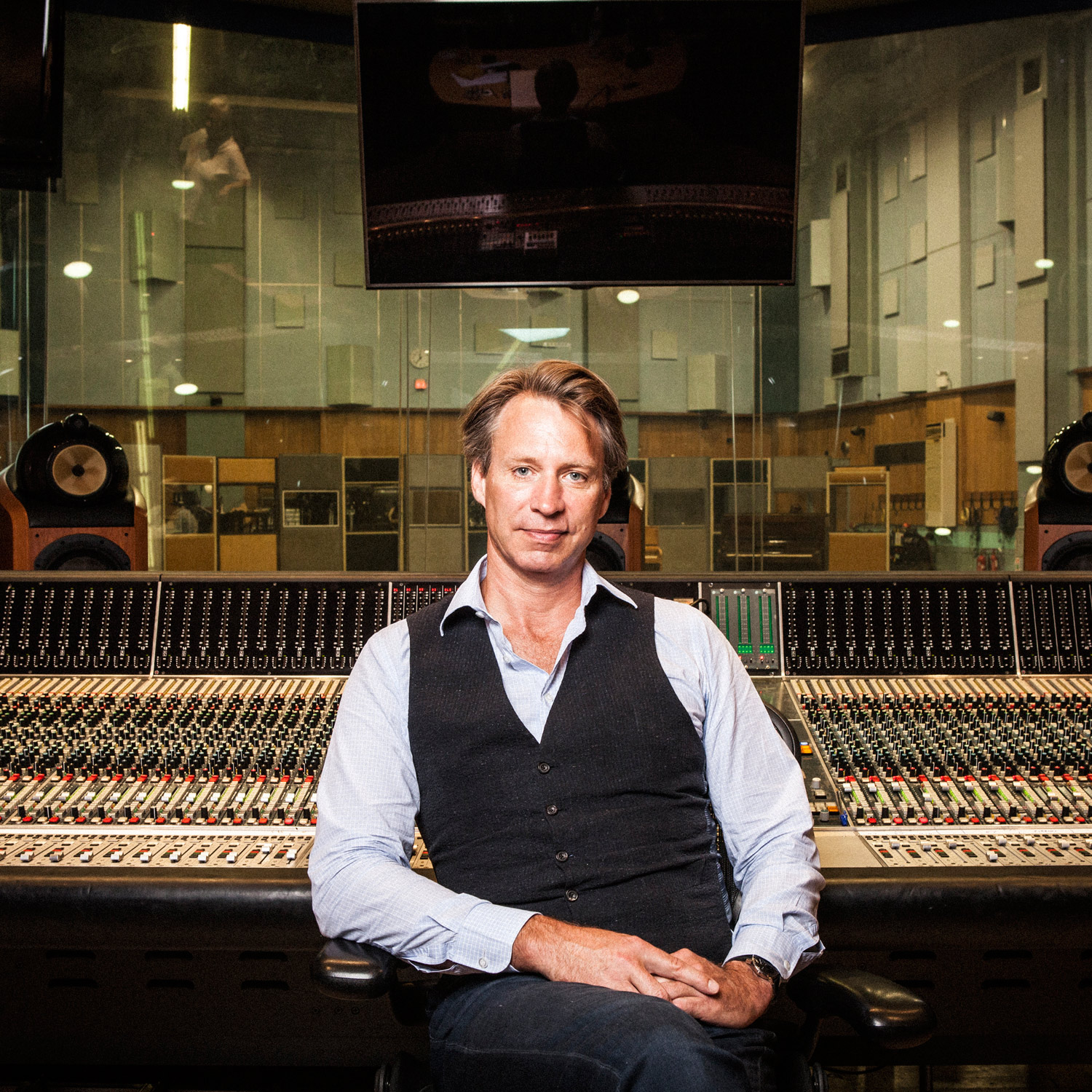
The Beatles‘ 1970 album Let It Be will be reissued this Friday. Vinyl and CD box sets offer a new Giles Martin stereo mix of the original album, while the blu-ray included with the latter features Dolby Atmos and 5.1 surround mixes. SDE caught up with Giles recently to discuss how and why the remixing takes place.
SDE: Let It Be is quite an interesting album, isn’t it, because most Beatles albums are pretty much the accepted definitive statement of that period, but with this record we know they weren’t 100 percent happy with it. John famously called it “badly recorded”, albeit that was back in the early ’70s. And we know Paul wasn’t happy with ‘The Long And Winding Road’ and various other things. So given that, were Paul McCartney, Ringo Starr, Yoko Ono and Olivia Harrison reluctant to revisit this original Phil Spector mix?
Giles Martin: It was really Paul that had the biggest problem with it, because, don’t forget, John was part of getting Phil Spector involved in finishing it, despite what he said later. And listen, if Paul didn’t want to do it, then we wouldn’t be doing it. He and I met up at Abbey Road Studios and just talked about it. You know, Let It Be Naked was done and we actually started talking about Sgt Pepper and how ‘Penny Lane’ and ‘Strawberry Fields Forever’ weren’t on Sgt. Pepper and you know, the feeling is you can’t change history. So he wasn’t necessarily reluctant, he just asked me if I could turn the harp down a bit in ‘The Long And Winding Road’. So if that makes any sense, that’s kind of the honest answer. What was done was done – a long time ago – and you could argue that actually, the sound of these tracks has become iconic in their own way.
Do you think that it needed a stereo remix? Clearly, there’s been a great deal of work going on, which you’ve been involved in, in terms of the documentary (Peter Jackson’s The Beatles: Get Back) and the 5.1 and the Dolby Atmos mixes are another thing as well. But how much do you think it needs a stereo remix? Is it just something that you’re now expected to do with each Beatles box?
In order to do an Atmos mix, you have to do a stereo remix, anyway. You can’t do a a spatial audio mix without remixing it. And does it need remixing? [pause] Erm… it’s not for me to say, really; I just get asked to do it. I suppose sonically, it’s probably the most unloved Beatles album and you find the purpose of these things as you do them. With Let It Be, it’s a bit of a hodgepodge of a compilation record, but one thing we can do by attempting to remix it, is give it more of a homogenous feel. So that’s probably why it deserves a bit of love, because it’s a strange album built up of live performances from the rooftop, outtakes from Savile Row, and Phil Spector’s overdubs. And so our approach was to make some sense of it all, really.
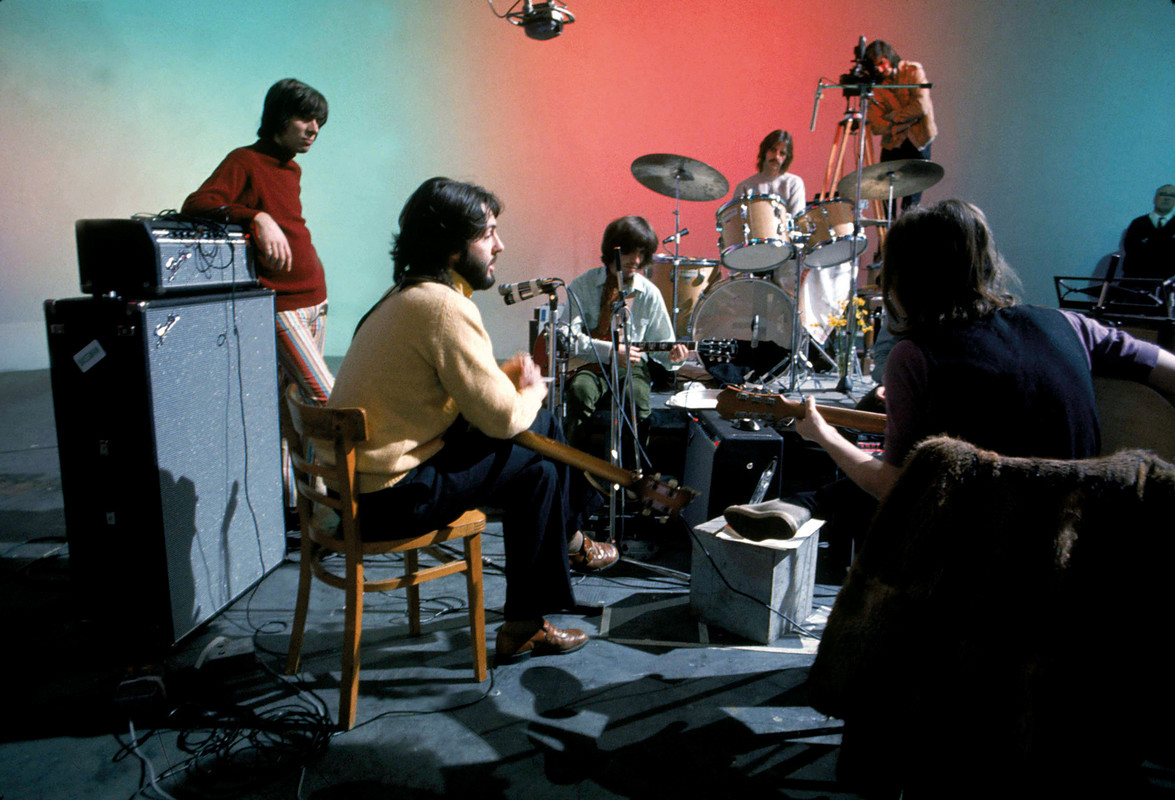
That’s interesting, because with the work that Paul Hicks has been doing on Lennon’s albums recently – which are also stereo remixes – those had specific goals, like bringing John’s voice up a bit. But yours is a more delicate approach, because you’re not really looking to change the balance between the instruments and the voices.
You are just trying to make it sound good, to be honest with you. It sounds ridiculous to say it, but that’s the key. You know, some people say that I always turn the drums up, for instance; some people say that the vocal becomes clearer – you don’t really have a goal. I mean, obviously Paul [Hicks] worked for me for a long time and I know Paul really well – in fact we are working on a project at the moment – but I know that he doesn’t have that intent either, like ‘I’m going to make the vocals louder’ but that’s might be what results in the end with artist, in my case, the band approving it.
Are there certain things you would always do to make it sound better in a specific medium, like streaming. Do you approach it thinking ‘we’ll definitely have to do a little bit of this or that’ – or does it just not work like that?
All of this stuff is very song-specific. There’s always a track that seems to fall into place very quickly, like ‘Let It Be’. Whereas ‘The Long And Winding Road’ was a real struggle, because with the orchestra it’s easy to make the song sound too saccharine, in a way. And Phil Spector’s sounds are very middle-y and can sound very big through a small speaker but very small through a big speaker. So there’s really no formula to what we do.
You mentioned the fact that it’s a bit of a hodgepodge. How are the original recordings? Are they all 8-track?
Yes, 8-track, and in the case of this album, you have the rooftop concert which is an 8-track recording and then you then you have the Phil Spector overdubs which have been bounced from 8-track to 8-track but yeah, essentially the medium is 8-track.
But with your producer/engineering ears can you immediately tell the difference between say, what was recorded in Twickenham Studios and 3 Savile Row?
Well yeah, because there’s nothing on Let It Be from Twickenham Studios. It’s all from Savile Row. Either rehearsals and recordings from Savile Row, or the rooftop.
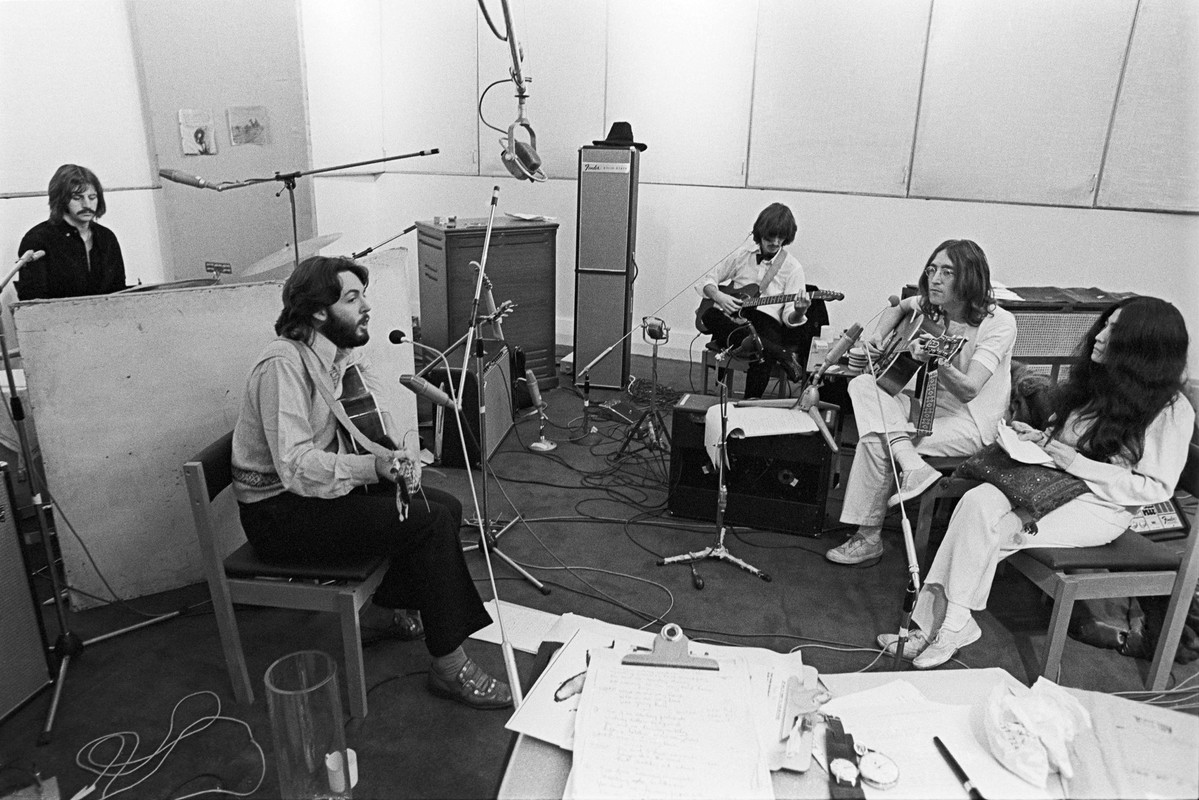
Had everything already been digitised at some point in the past? Were you working from existing digital files? Or did you have to go through the process of digitisation?
For the film we had to digitise tapes, and that was the source of the extras on the package. But we’ve now pretty much backed up The Beatles’ catalogue, which is important to do. So yeah, so we’re not working from original tapes.
Because you’re remixing and you’re having to go back to the original sources, you would have had to recreate Phil Spector’s edits, wouldn’t you? So things like I Me Mine when he stretched that and made it longer? You would have had to recreate that?
Yeah, I mean, we had that’s what we do for all of this stuff. Even things that are varisped, you know, we have to match it and we do that analogue. All the dialogue is taken from source. Everything you hear is taken from source.
What’s the documentation with the original recordings like, in terms of EQ, reverb etc.?
There’s no documentation on EQ or anything like that. And if there was you still have to do all this stuff by ear, anyway. We start by trying to match all the equipment, and we do, but even if you were to do that the next day, it wouldn’t be the same, if that makes sense, let alone 50 years on.
This is probably not an easy question to answer, because you’ve been working on the documentary side of things as well, but how long did it take to work through and recreate both the stereo and 5.1/atmos mixes for Let It Be?
It kind of depends on the track. We work fairly quickly. It’ll take a day for doing mix, but then we might go and revisit a number of times. As I say, ‘The Long And Winding Road’ for some reason took a long time to do and we kept going back to it. So that took longer than I hoped. Other tracks are usually done in a day. It’s like anything else, really. You know, how long does it take you write an article? Sometimes it might take a lot of time sometimes less, depending on whether you are happy with it.
And all the tracks, once you’ve done them they went to Paul, Ringo, Yoko, Olivia? Everyone has to sign off and approve everything?
Of course, yeah.
And were you given any feedback which resulted in changes? Was that part of the process where you’d read notes and make changes based on what they were hearing?
No, I think that I remember I think that was Dani [Harrison] had some comments on ‘I Me Mine’, and Paul and I discussed what the extras should be. It’s funny, it’s walking that balance of it [not] being boring and giving people everything they want. But yes, there’s always comments that need to be addressed, but it’s quite a collaborative thing and there’s not that many people involved, so it’s fairly easy and straightforward. I think, compared to a lot of projects that happen [in other industries] with film and music production it’s actually pretty tight and there seems to be a remarkable absence of ego when it comes to decision making.
Did you make a point at the beginning of listening to everything? All 100+ hours of audio?
Yeah, I did I did it for the film as well. And then there’s these two guys called Kevin Howlett and Mike Heatley. And they sort of see things from the fans’ perspective and they help me and we argue about stuff, where they say “this is really important” and I’m like “well it doesn’t sound very good”.
And the Glyn Johns mix – he came in and did some work on his mix, I believe
Yes, he remastered it.
Okay, right. So that obviously that hasn’t been remixed. The original mix which has been sitting somewhere for all these years has been remastered Is that correct?
Correct.
You and Sam Okell have worked together for a long time and are clearly a good team
Yeah, and I mean, the weird thing was being in lockdown. But it really worked out fine. I mean, I have a studio at home. It’s just that it’s kind of isolating, the work we do, and so you need that sense of collaboration, both in a room together where another set of ears is useful. And for me in lockdown, I’ve just had a dog, really, which was nearly the same as Sam, but not quite.
So you don’t necessarily need all the bells and whistles of an Abbey Road environment to do this kind of work?
It helps, but you know technology has moved on. But yes, it certainly helps. But for this album [the situation] was very ‘Let It Be’ to a certain extent and we just couldn’t because a lockdown.
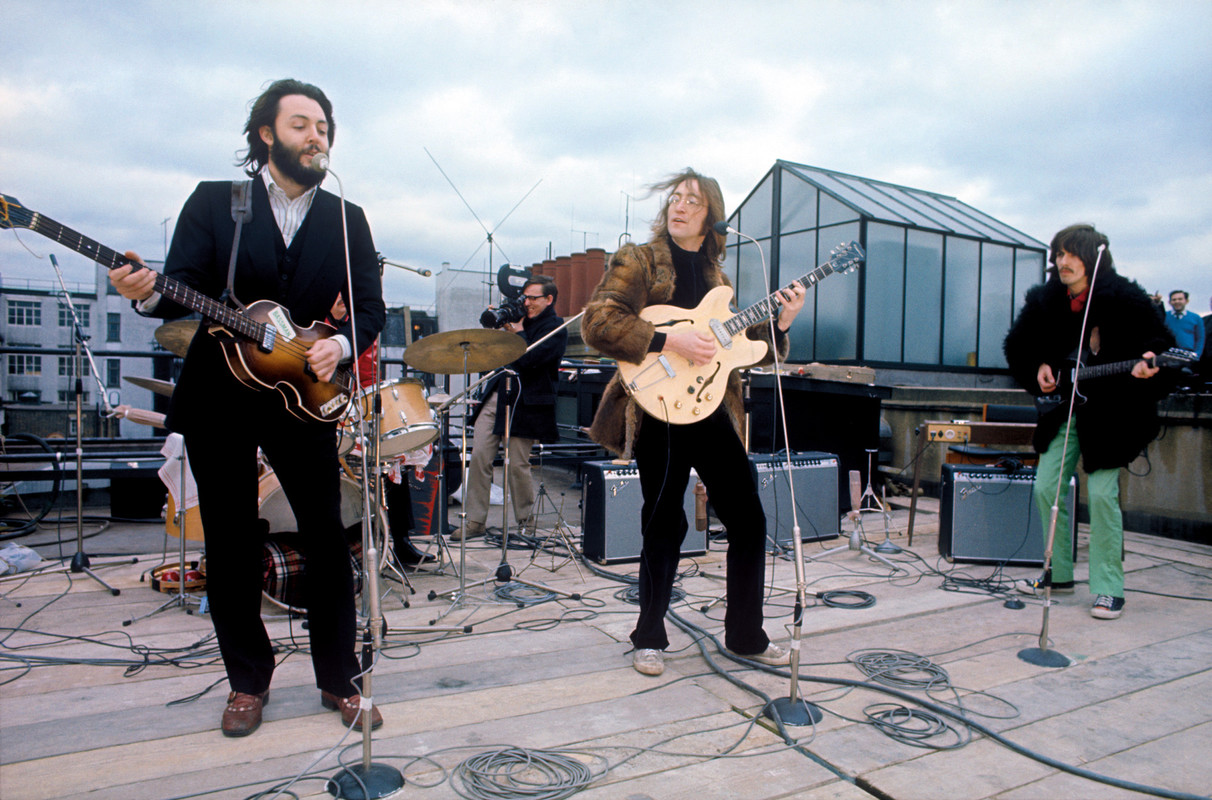
One of the things I wanted to ask you was what your dad thought of the Let It Be album. Obviously, he’s not credited as a producer and it’s got that famous “reproduced for disc” credit with Phil Spector and George Martin gets a ‘thanks’. But I’ve never been totally clear of the extent of your dad’s involvement with the record, you know whether he was there in Savile Row with them every day or whether he was just in and out. Did you ever discuss it with him?
I didn’t really discuss it with him, but I have been working on this documentary, so I’ve kind of seen what his role was. Which I find quite interesting. So obviously, the Beatles got Glyn Johns to do the live recording – I mean, Glyn Johns is a great producer, anyway – but they didn’t want my dad’s influence because they were doing a live show and they’re not making a record to begin with.
However, it seems that what my dad would come in and out of both Twickenham Studios and Savile Row and sort of had this role of going “What the hell’s going on guys, what you’re doing?”. Whenever he was there, they seem to do more songs than when he wasn’t there and then he was involved with rooftop [concert] and then pre-rooftop he’s saying “What are you performing rooftop? What’s the plan?” So he’s very much a belt and braces guy, my dad, he liked everything to be just so. Then Glyn was given the record to mix and that’s what we put on this this set [LP4 in the vinyl package, CD3 in the other box].
John Lennon said to my dad, “No, we don’t want any of your production shit on this record”
Giles Martin
When Allen Klein and John and George gave the record to Phil Spector, my dad had no involvement in that at all. And like Paul, he was surprised that having been told by The Beatles, or certainly by John, that he wanted to get away from this whole production idea – he said to my dad, “No, we don’t want any of your production shit on this record” – he was quite surprised that he got one of the guys who really stamps his producer’s mark on everything he does, to go and do it. So I think, the Get Back era, which was the recording pre-Spector, my dad was very involved. He was involved in sort of an A&R/Recording Manager-type role. Because don’t forget he was their A&R guy as well.
It all came good in the end with Abbey Road, but it must have been a weird, uncertain and slightly disappointing period for your dad, I imagine, especially when Let It Be went from, as you say, the idea of doing a live concert to an album. When it did turn into an album they could quite easily have turned the tapes over to George Martin instead of Phil Spector but they chose not to do that.
It’s not even ‘they’. I think it was Allen Klein, John and George. And I think that Phil Spector was the new kid on the block and was the hit producer, if you like. It’s not the first time that that kind of thing happened and it won’t be the last. The good thing is it all came good in the end. But in essence, the band moved away from the direction that my dad wanted them to go in which was more, I suppose, progressive in a way.
After Sgt. Pepper, I think my dad thought that everything they did would be like Sgt. Pepper and The Beatles being The Beatles rebelled against that and made ‘The White Album’ and Let It Be
Giles Martin
After Sgt. Pepper, I think he thought that everything they did would be like Sgt. Pepper and The Beatles being The Beatles rebelled against that and made ‘The White Album’ and Let It Be. To a certain extent, the second half of Abbey Road with the medley was how my dad wanted The Beatles to be and so he got his way in the end. So it turned out fine. And that was the last thing they did, as a band. So they ended on a good note, but people don’t think that because Let It Be came out so much later.
Did you have to change your approach when it came to doing the 5.1 mix and the Atmos Mix with these particular set of recordings or was it was it same as what you’ve done with previous albums?
Going back to my previous answer, every song is different. So for instance you know, with Sgt. Pepper – actually, I’m redoing the Atmos of Pepper at the moment – but with that, because it’s psychedelic you can probably have use more space and have certain sounds at the back and all that sort of stuff. But with something like the rooftop concert, you kind of want the band to be in front of you, performing. The advantage of immersive audio is that with some songs you can try to make things more intimate by putting space in the room around you and other songs you can make more extraordinary, more three dimensional. So it depends on the nature of the song.
You said you are redoing the Sgt. Pepper Atmos Mix. Why are you doing that? It never got a commercial release at the time, at least not on the physical box set, but…
…Yeah, well, it came out on Apple iTunes. And the way we did that, because it was really early doors for Dolby Atmos, we mixed it in a large room, which then had to be shrunk down. If that makes sense. So it doesn’t quite sound how I want to sound so I’m just redoing it. So we are giving it a theatrical mix… and it should [also] be for near-field mix [a near-field mix is when you take a theatrical Dolby Atmos mix and make it work for a home entertainment setting].
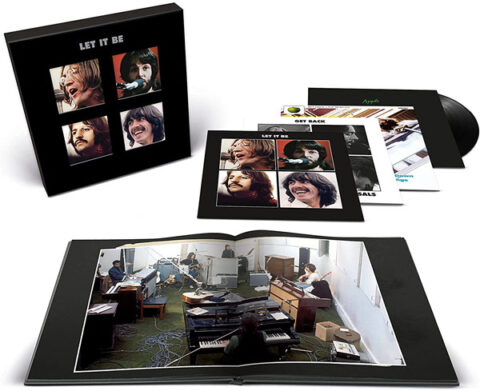
Let me ask you…there’s so many versions of the songs on this record, because there’s all these hours and hours of tapes. But when you listen back to the Phil Spector version of Let It Be, do you think he broadly got it right and actually did a good job of getting the definitive, or near to definitive, versions of the songs on the record?
I think so… although it’s hard to say because we’re so used to them. It’s what we are used to. You know, it’s it’s not for me to say. I think it would be for Paul to say whether ‘The Long And Winding Road’ was the definitive version and I think he’d probably say it wasn’t!
What about the future, Giles? I read some comments which were attributed to you where you questioned whether the ‘de-mixing’ technology was good enough to go back to the earlier albums like Rubber Soul and Revolver for surround mixes and new stereo mixes and all the rest of it. What are your thoughts? If you were asked to go back and do Rubber Soul or Revolver, is that completely doable at this moment in time?
I don’t think it is at this moment in time. And I just think you have to have a good reason to do it. And that reason has to be a sonic improvement, there’s no point in doing it for the sake of it. Although I can’t really answer that because I haven’t really looked at that properly. One of your first questions is did the Let It Be need remixing and so my question to you is do you think That Revolver or Rubber Soul needs remixing? Or do you think Let It Be needs remixing?
Yeah, I mean arguably they don’t…
You have to answer the question!
[laughs] Well, I don’t think Revolver does, for instance, I don’t think that needs remixing but I could see why Apple/Universal would want to get you to remix it because saying that something has been newly remixed is a commodity, it’s something that people want to buy, whether it’s better or not, compared to the original. There is that commercial side of it that you can’t ignore. If you want to sell a product the more bullet points you can have in the list of reasons of why to buy the product, the better.
Yeah, but I can honestly say to you that if I was to approach this remixing thing – maybe I’m just naive – as this way to commoditise this record, then that would be slightly soul destroying to do that.
I know that isn’t how you would approach it because you are…
…no, no, no, I’m just tried to talk it through. I think there’s a strange benefit in that it gets people talking about these records. And, you know, if I do get criticised for this stuff, I kind of embrace it, because, you know, if people go “I much prefer the original” then great, go and listen to it! But I know what you mean. For the me, personally, there has to be a reason to do it.
But I guess putting aside the album itself, if even if you didn’t remix Revolver just for the sake of argument, since that’s the next one that back in the sequence, you know, you would certainly be asked to go into the tape archive to see what outtakes and alternates exists and they would probably have to remixed in terms of putting them on a new product. So I guess the question is, because they would have been 4-track recordings, which lots of bouncing down and all the rest of it, is that doable or not?
There’s not as much bouncing down on Revolver as there is on Pepper. There’s not that many instruments, it’s not that complex. In terms of remixing, you could argue with ‘Taxman’, which starts on drums on one side [on the stereo mix], would it benefit from drums in the middle, like a modern day recording would?
Your Sgt. Pepper stereo mix is really good, because as you said at the time, it gave it the spirit of the mono mix, but in stereo.
So that’s the thing. If you want power from your drums, you’re better off, if you have a stereo setup, with the drums even come out of two speakers, instead of one, in a very simplistic way. So I think that’s the point with Revolver, if we can find a way of doing something, and then once we find that way, see whether it’s better, or not – it may just be worse – then that’s the answer and that’s my approach to all this. People will listen to Beatles records, anyway. A lot.
Giles Martin was talking to Paul Sinclair for SDE. The Let It Be reissue is released on Friday 15 October.
Compare prices and pre-order

The Beatles
Let It Be - 5CD+blu-ray super deluxe with book
Compare prices and pre-order

The Beatles
Let It Be - 5LP vinyl box with book

|
|
||||||||||||||||||||||||||||||||||||||||||||||||||||||||||||||||||
Compare prices and pre-order

The Beatles
The Beatles Get Back - book

|
|
||||||||||||||||||||||||||||||||||||||||||||||||||||||||||||
Compare prices and pre-order

The Beatles
Let It Be - 2CD deluxe edition

|
|
||||||||||||||||||||||||||||||||||||||||||||||||||||||||||||||||||||||||
Compare prices and pre-order

The Beatles
Let It Be - single LP

|
|
||||||||||||||||||||||||||||||||||||||||||||||||||||||||||||||||||||||||
Compare prices and pre-order

The Beatles
Let It Be - single CD

|
|
||||||||||||||||||||||||||||||||||||||||||||||||||||||||||||||||||

 Interview
Interview

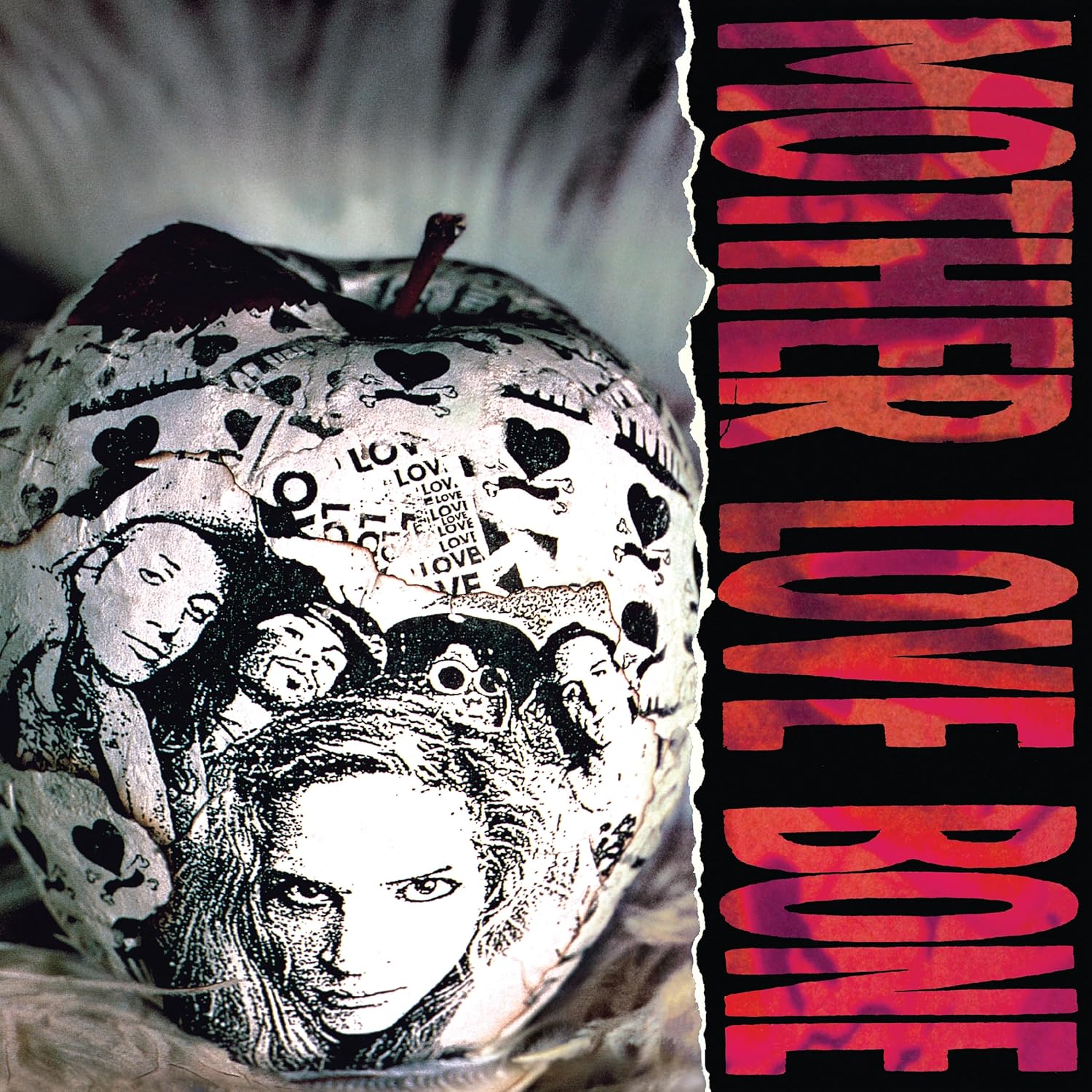
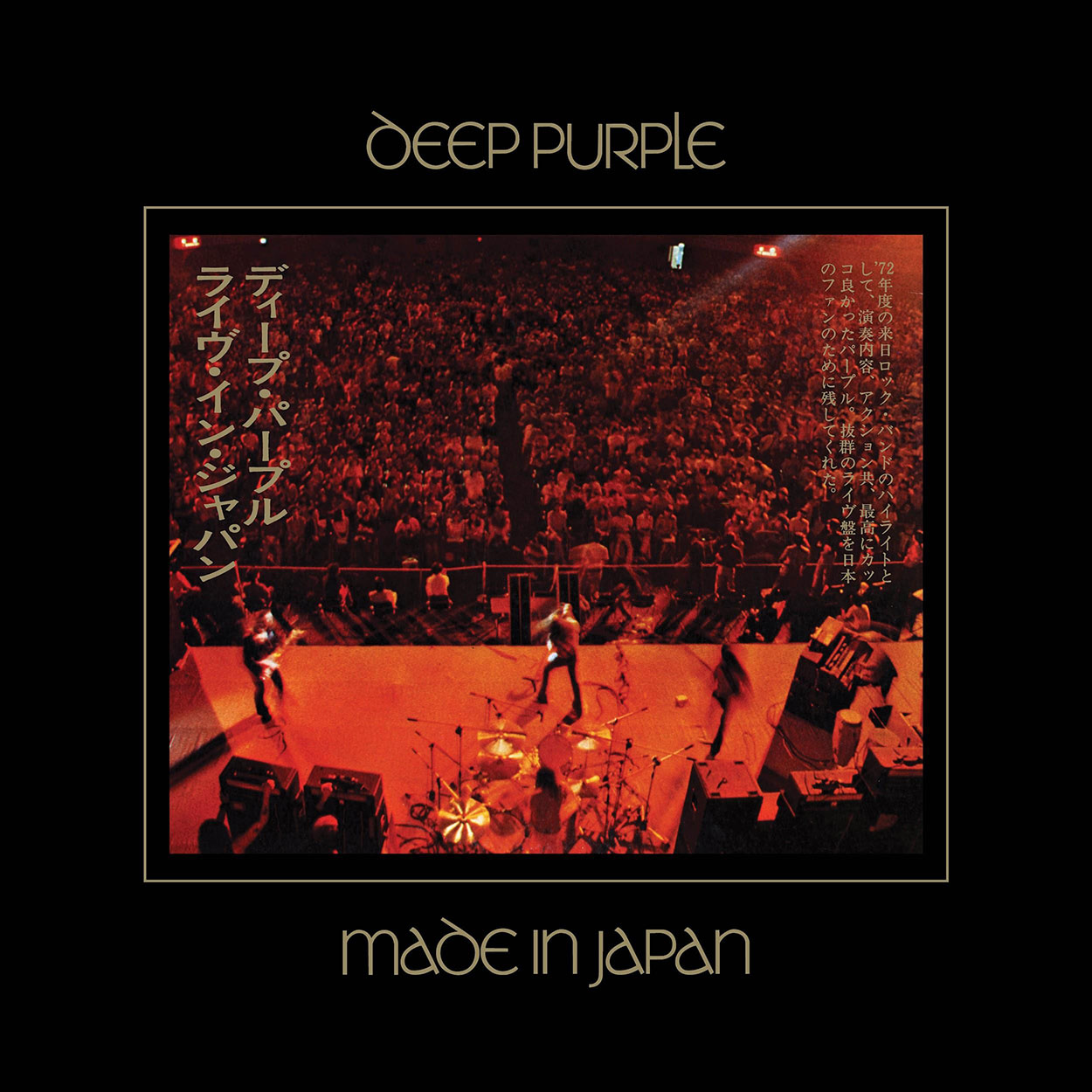
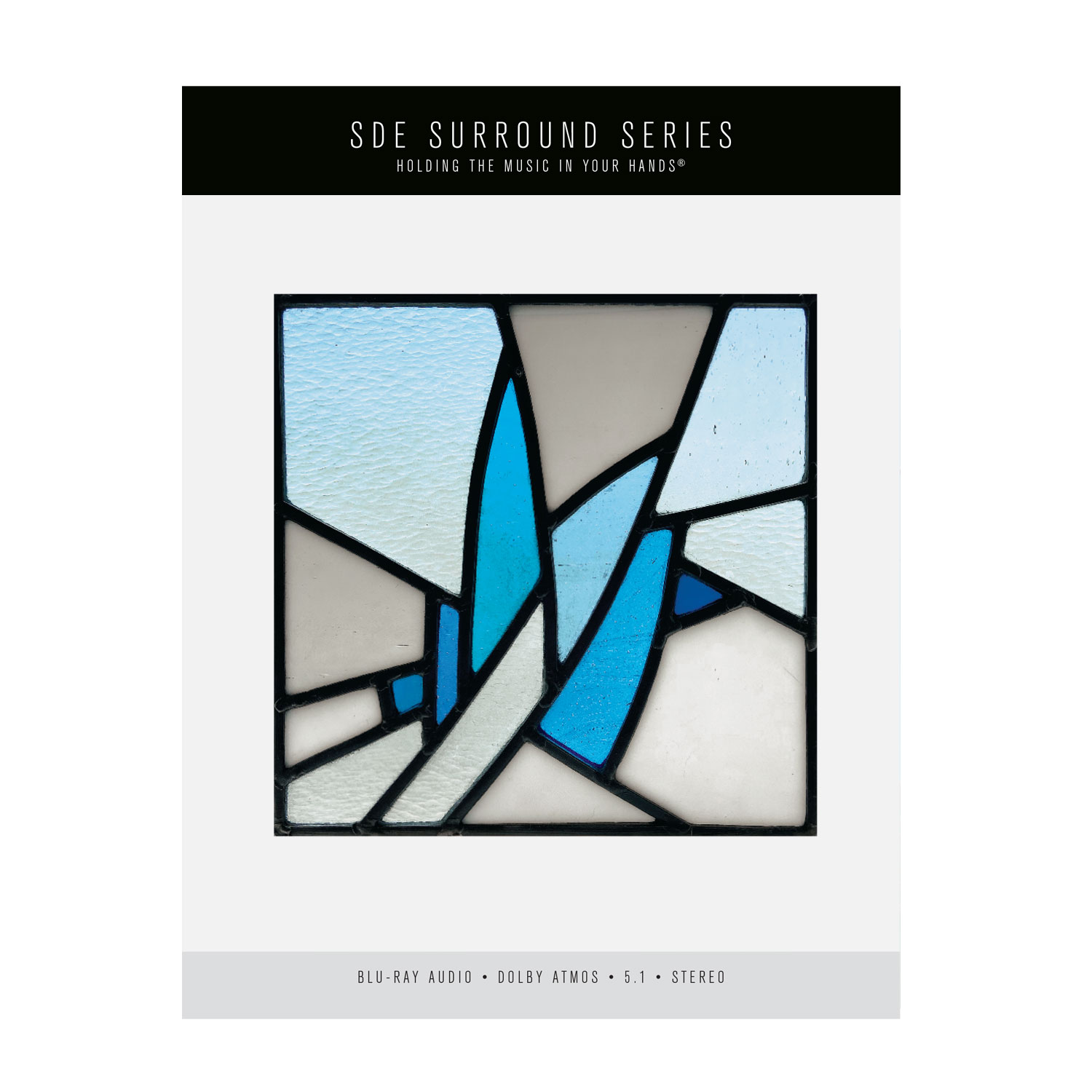
By Paul Sinclair
113